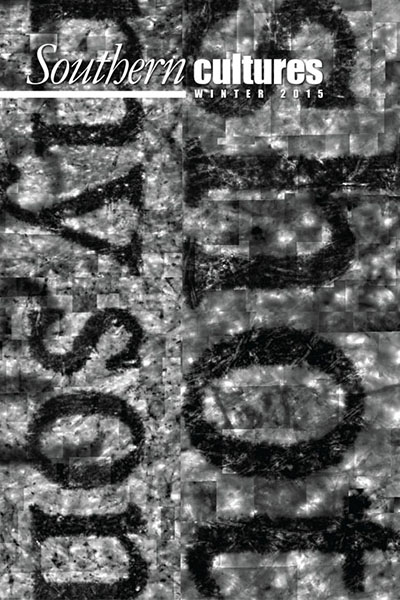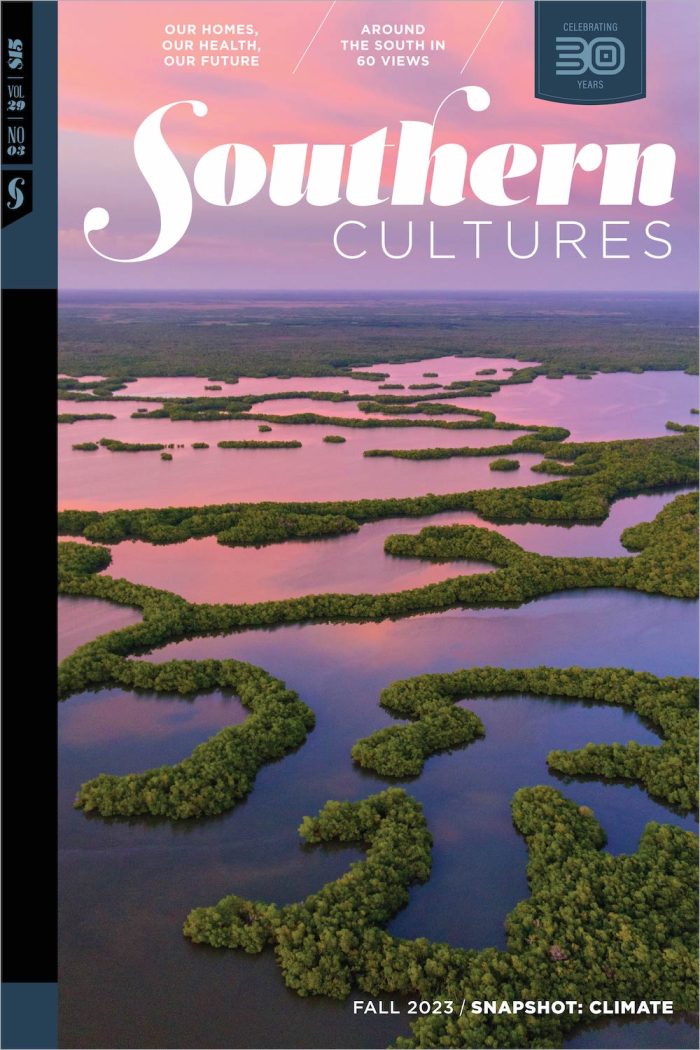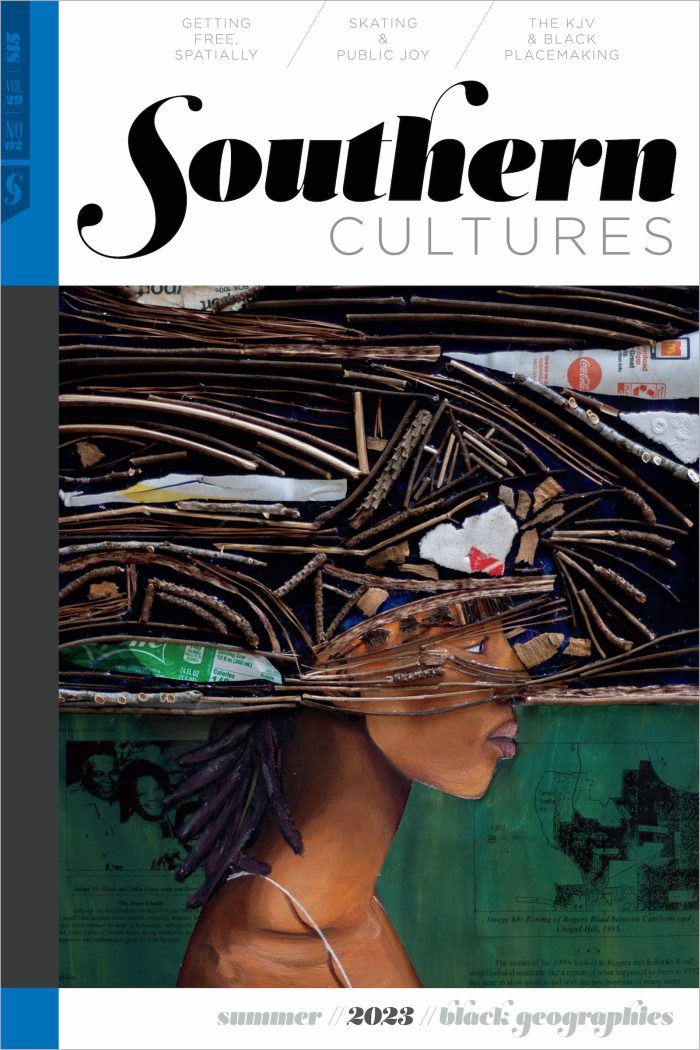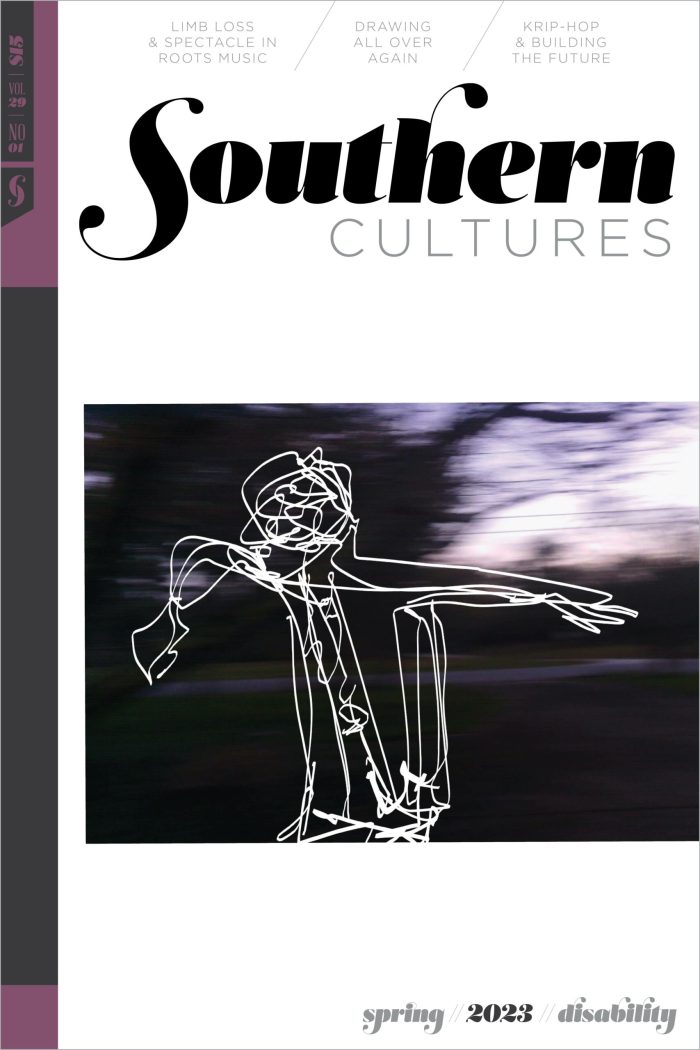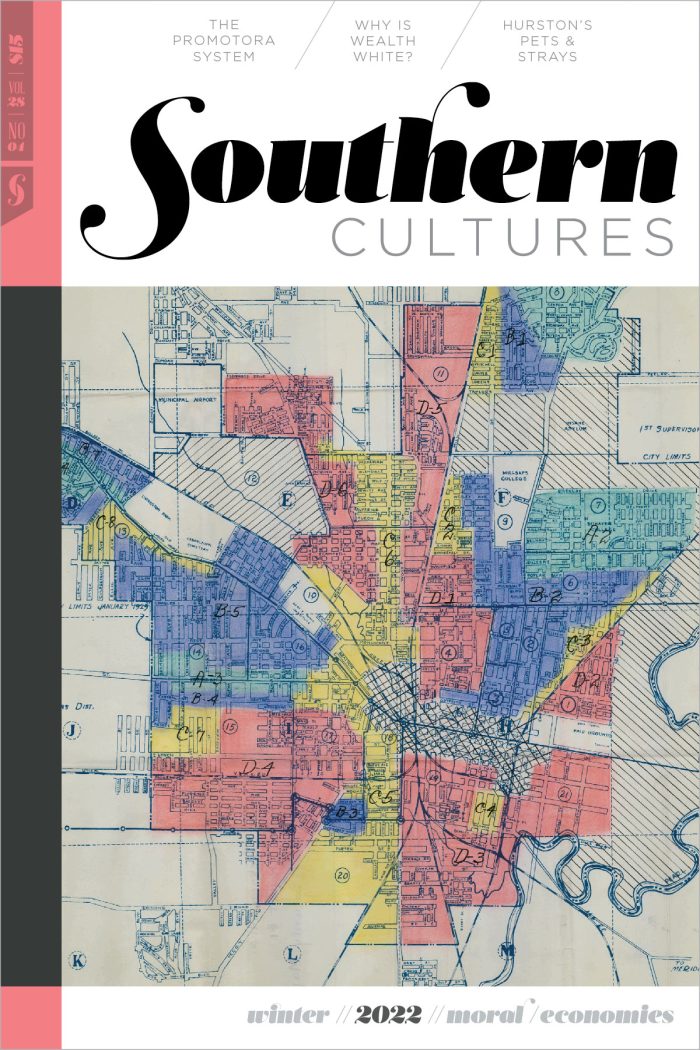BUY ACCESS
by Harry L. Watson
“If the articles in this issue resonate with recent events, it’s less a choice or a coincidence than a sharp reminder that enduring themes in southern culture do not easily fade.” It’s a peculiarity of quarterly publishing that Southern Cultures is rarely of the moment. Every issue must be ready for the printer about four »
BUY ACCESS
by Edward L. Ayers
“People see in the events at Appomattox what they want to see: testimony to Americans’ shared greatness or testimony to promises unfulfilled. Both of those things are real.” The meaning of the events at the McLean House on April 9, 1865, seem firmly embedded in our national story. In our country’s understanding, Appomattox is America »
BUY ACCESS
by Timothy S. Huebner,
Madeleine M. McGrady
“[B]y emphasizing military conflict over political debate, by privileging valor over ideology, and by accentuating white heroism over black activism, the Foote–Burns interpretation of the Civil War gave PBS’s mainstream American audience something to feel good about.” This year marks the twenty-fifth anniversary of filmmaker Ken Burns’s PBS television series on the American Civil War. »
BUY ACCESS
by Godfrey Cheshire
“What, finally, do we make of this holy monstrosity, this poisoned cornerstone of American cinema? And what do we do about it?” By one way of reckoning, the week of February 8, 2015, can be called the 100th birthday of the medium with which many of us have spent our lives enthralled: the feature film. »
BUY ACCESS
by H. Louise Searles
“‘It was the beginning of my every day walk with death for nine months.’” Most folks know August 28, 1963, as the March on Washington, but for me, it has another very profound meaning. It was the beginning of my every day walk with death for nine months—the start of Public School Integration in Fayetteville, »
BUY ACCESS
by Paul Mokrzycki Renfro
“Cultivated not only by white architects of the New South creed but also civil rights activists across class and ideological strata, Atlanta’s image as the ‘city too busy to hate’ crumbled as its young Black residents were abducted and murdered.” On May 25, 1981, an estimated three thousand people convened at the Lincoln Memorial in »
BUY ACCESS
by John T. Jones
“[T]he sweaty, aromatic ‘Bull Durham’ of old . . . existed even as today’s ‘City of Medicine’ was emerging.” The old saying “f/8 and be there” applies to these photos. In the early to mid 1980s, I was doing street photography in downtown Durham. Especially compelling was the warehouse district, home of the muscular, oversized »
Essay
by Bruce E. Baker
“[T]his more complex tale of the origins of ‘Tar Heel’ shows that it is rooted in hard work by poor people, work that dirtied the bodies of both enslaved Africans and poor whites in the Piney Woods.” A New Explanation North Carolinians have long called themselves Tar Heels, and “Tar Heel” is a badge of »
BUY ACCESS
by Kyle N. Osborn
“For American sectionalism was forged by the design of God, the North made into a ‘region of frost, ribbed with ice and granite,’ the South basking in the ‘generous bosom’ of the sun.” There was only “the North and the South,” William L. Yancey declared in 1855. Nullifying all geographical complexities and political nuances, the »
BUY ACCESS
by Davis McCombs
“He played the barn vents at curing time like the stops of an instrument, and went on, cupping his hands around the life he’d inherited as if it were a flame.” He clucked his tongue, slapped the bull’s rump, and turneda herd of Angus, single file, through the narrow gapin the fence to the bar »
BUY ACCESS
by Stephen J. Whitfield
Yale University Press, 2013 In 1993, after a day spent at an academic conference in Oxford, Mississippi, a group of southern historians decided to go out for drinks at a funky, let-it-all-hang-out beer hall near the campus. One elderly and elegant member of the group, however, attracted the attention of the young waiter, who asked: »
